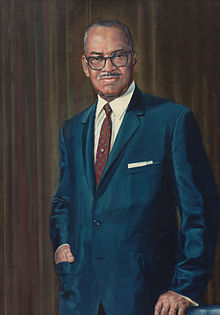William Dawson | |
|---|---|
 | |
| Member of the U.S. House of Representatives from Illinois's 1st district | |
| In office January 3, 1943 – November 9, 1970 | |
| Preceded by | Arthur Mitchell |
| Succeeded by | Ralph Metcalfe |
| Member of the Chicago City Council | |
| In office 1933 – April 12, 1939 | |
| Preceded by | Louis B. Anderson |
| Succeeded by | Earl B. Dickerson |
| Constituency | 2nd Ward |
| Personal details | |
| Born | William Levi Dawson April 26, 1886 Albany, Georgia, U.S. |
| Died | November 9, 1970 (aged 84) Chicago, Illinois, U.S. |
| Political party | Republican (Before 1939) Democratic (1939–1970) |
| Spouse | Nelle Brown |
| Children | 2 |
| Education | Albany State University Fisk University (BA) Northwestern University (LLB) |
| Military service | |
| Allegiance | United States |
| Branch/service | United States Army |
| Years of service | 1917–1919 |
| Rank | First Lieutenant |
| Unit | 366th Infantry Regiment |
| Battles/wars | World War I |
William Levi Dawson (April 26, 1886 – November 9, 1970) was an American politician and lawyer who represented a Chicago, Illinois district for more than 27 years in the United States House of Representatives, serving from 1943 to his death in office in 1970. In 1949, he became the first African American to chair a congressional committee.[1]
Born in segregated Georgia, Dawson attended Fisk University in Tennessee and Northwestern University School of Law in Chicago. He served as an officer in the segregated U.S. Army in World War I. Back in Chicago, he became a successful lawyer, community leader, and Democratic Party activist.
Like his two predecessors representing Illinois' 1st District, when Dawson was first elected in 1942, he was the only African American in Congress. He was active in the civil rights movement and sponsored registration drives. In the late 1940s he successfully opposed efforts to re-segregate the military.
Dawson was the first African American to chair a standing committee in the United States Congress, when he chaired the Committee on Expenditures in the Executive Departments. He served as chair of that committee and its successor for most of the years between 1949 and 1970. After 1952, Dawson also became closely aligned with the political machine in Chicago, collaborating often with Mayor Richard J. Daley. In this role, he focused on patronage and services for his constituents. He gave no support to the efforts of Martin Luther King Jr. to shake up city politics in the late 1960s.[2]
- ^ "DAWSON, William Levi - US House of Representatives: History, Art & Archives". history.house.gov. Retrieved 2020-08-16.
- ^ Christopher Manning, William L. Dawson and the Limits of Black Electoral Leadership (2009)